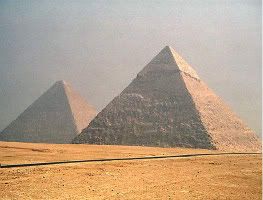The article “Workshop Aims To Promote Arabic Language “ by Carol Rizk (1/16/2010) prompted me to write this post.
Rizk was reporting on an organization ‘Fil’Amr’ that sponsored an Arabic festival “with the aim of promoting and preserving the Arabic language.” She quotes Suzan Talhouq who wrote, “…The Arabic language is in a delicate and sensitive position.”
This is somewhat true. I have expressed a similar point in an earlier post ‘The Demise of the Arabic Language in Egypt’. However, the word ‘preserving’ is not appropriate when we refer to Arabic.
Talhouq in discussing the state of the Arabic language was in connection to a conference, she must have attended (The International World Conference on Linguistic Rights held in Barcelona in 1996). The attendees at the Conference discussed “ the people’s right to defend their mother language as it was threatened.”
The Arabic language is definitely not threatened. Languages such as Basque, Scottish Gaelic, Nubian might be threatened due to their contact with a dominant language, that is, there is a “tip” in favor of some other languages, such as Spanish, English, or Arabic.
Talhouq further says that “invasions” and “colonization” has led to “the mutilation 'of Arabic' in Lebanon, Jordan and Iraq”
In my opinion “mutilation” is also too strong of a word. It is rather a situation of language contact where Arabic came into contact with other languages.
Whenever languages are in contact, three major processes occur: code switching, borrowing and interference. These are linguistic processes that affect all languages in contact and, hence, can explain the changes that have occurred in the Arabic of Cairo, Beirut, Amman or anywhere else where Arabic is the dominant language.
Language in contact is not a recent phenomenon. It has always occurred and will always occur. As David Wilmsen commented on this bog. “It simply shows that the language is indeed living.”
In the same article, Walid al-Kabis, an Iraqi author living in Norway, notes that Arabic will “become the third international language in 2050 because the number of Arabic speakers would multiply considerably.” That says it all.





The following is in support of the above post “Is Arabic Threatened”.
ReplyDeleteThe Chosun IIbo in Korea published an article (1/26/2010) stating that Arabic is the most popular second language on the College Scholastic Aptitude Test (CSAT) for the first time this year. This popularity, according to the article, is due to the fact that Arabic is a “soft” subject, where students can earn high scores for less effort. However, there isn’t a single high school in Korea teaching Arabic.
There is no question that in the future this popularity towards Arabic on the university level will spread to lower educational levels, such in high schools.
In addition to the above, a Press release from Arabian Business.com (1/26/10) stated that a team of Ajman University of Sciences and Technology has visited the Arabic Language Department of Eastern Languages of the University of Shanghai International Studies in Shanghai, China.
The team found out that the number of “students in the Arabic Language Department are the highest of all departments of Eastern Languages.” A member of the visiting team, Professor Mohammed Radwan Al Daya, stated that the Arabic Department was the most attractive in the college.
This is a simple reflection that Arabic is not threatened, and due to the fact that it is becoming popular in countries such as Korea and China, the teaching of Arabic as well as speakers of Arabic will multiply considerably.